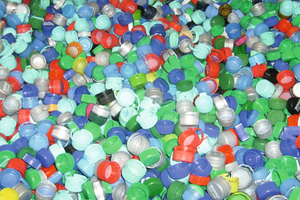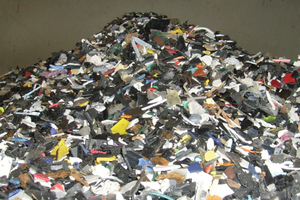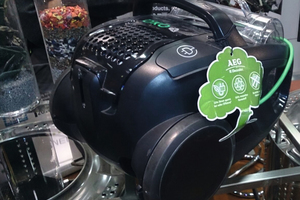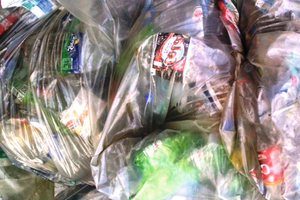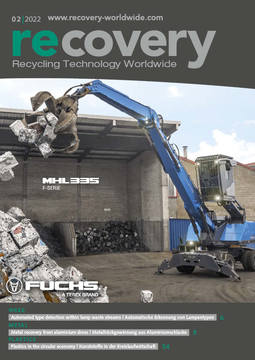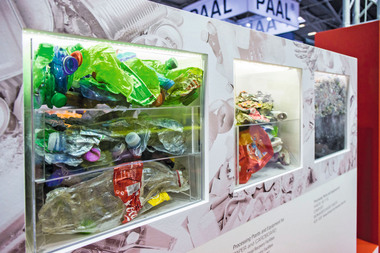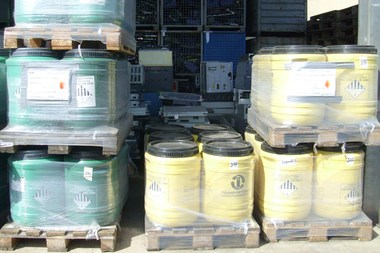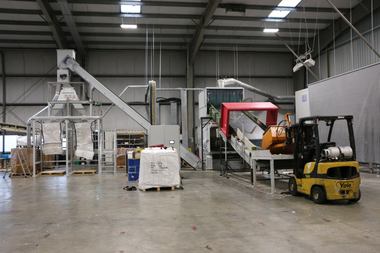Current work focus of the VDI guideline committee 4095
In 2020, the guideline committee VDI 4095 „Assessment of plastics in the circular economy“ was founded to develop practical and legally compliant recommendations for action for the circles concerned. The overriding goal of the guideline committee is to massively strengthen the use of plastic recyclates.
The VDI Guideline Committee 4095 consists of experts from the entire production and recycling chain as well as experts from science and administration. The chairwoman of the guidelines committee is Dr. Bettina Enderle. At present, the committee is being led provisionally by her deputy, Dr. Ralf Brüning.
Conflicting goals in plastics recycling
The global production of plastics reached circa 360 million t in 2018. Of this, almost 62 million t were produced in Europe [1]. In terms of plastic waste, about 29 million t were officially generated across Europe in 2018 [1]. In addition, there is waste that enters the environment illegally and is not officially collected and recorded. Only about 33 % of the collected plastic waste is recycled.
The remaining quantities are recycled for energy (approx. 43 %) or landfilled (approx. 25 %)[1]. Overall, there is still a great need for action in the recycling of plastic waste. The proportion of material recycling and the quantities of post-consumer recyclates used urgently need to be increased.
On the one hand, it is undisputed in politics and industry that the use of recyclates for plastics should be increased. On the other hand, the principle applies that substances that are harmful to the environment and health must be removed from the economic cycle. For various (harmful) substances (e.g. flame retardants) that may be contained in end-of-life plastics, there may be a destruction requirement during recycling. In addition, there may be legal restrictions or bans on the (re)marketing of certain (harmful) substances – e.g. in a recycled plastic.
Focal points of the guideline committee‘s work
The guideline VDI 4095 is intended to help overcome this conflict of objectives in the use of plastic recyclates. The first task of the guideline committee is therefore to describe the current situation along the plastics production, use and recycling chain and to map the state of the art. In addition, methods of environmental assessment of plastics in the circular economy are specifically addressed.
Specifically, the guideline defines crucial terms or compiles existing definitions of crucial terms. The aim is to promote a uniform use of language in the market for recyclates. In doing so, it is important to take into account the legal definitions.
In Germany, for example, more than 12 000 t of plastics were consumed in 2019 [2]. This includes both primary products and recyclates. About 27 % of these plastics were consumed for packaging and circa 24 % in the construction sector. Other fields of application follow at some distance. In terms of waste generation, the dominance of the packaging application field is even clearer. Around 60 % of the plastic waste generated in Germany comes from packaging. Waste from the construction application field follows in second place. However, they account for only about 10 % of the plastic waste generated [2].
Guideline 4095 describes the most important fields of application for plastics as well as the characteristics of the polymers used there. This shows which recycling qualities are required for which polymer streams and in what quantities. In this way, the guideline should help to better coordinate the recycling, production and use phases.
The guideline also considers which recycling technologies can be used to achieve the required qualities. Various mechanical, physical, chemical and enzymatic/biological recycling processes (especially for bioplastics) as well as other raw material recycling processes are considered. The most important advantages and disadvantages of the processes as well as their suitability for different types of polymers are compared and evaluated.
The guideline also focuses on investigating and describing the interface between plastic products and plastic waste. The legal requirements for reaching the end of waste and product status are compiled. Based on this, corresponding recommendations for action are elaborated.
Conclusion and outlook
VDI Guideline 4095 currently deals with the focal points described above. In the future, it is planned that further sheets will deal with individual technical aspects and processes in greater depth. The guideline committee therefore still has challenging work ahead of it.
At present, there is still an opportunity to actively participate in and shape Guideline 4095. Interested parties can contact the acting chairman Dr. Ralf Brüning directly.
Literature:
[1] PlasticsEurope Deutschland e. V. (2019), Plastics – the Facts 2019, An analysis of European plastics production, demand and waste data. Special show of K 2019; https://plasticseurope.org/wp-content/uploads/2021/10/2019-Plastics-the-facts.pdf [abgerufen am 27.01.2022].
[2] Conversio – Market & Strategy (2020), Stoffstrombild Kunststoffe in Deutschland 2019; https://www.vci.de/ergaenzende-downloads/kurzfassung-stoffstrombild-kunststoffe-2019.pdf [abgerufen am 27.01.2022].
Authors:
Dr. Ralf Brüning, Julia Wolf, Florian Piehl
Dr. Brüning Engineering UG, Brake/Germany

